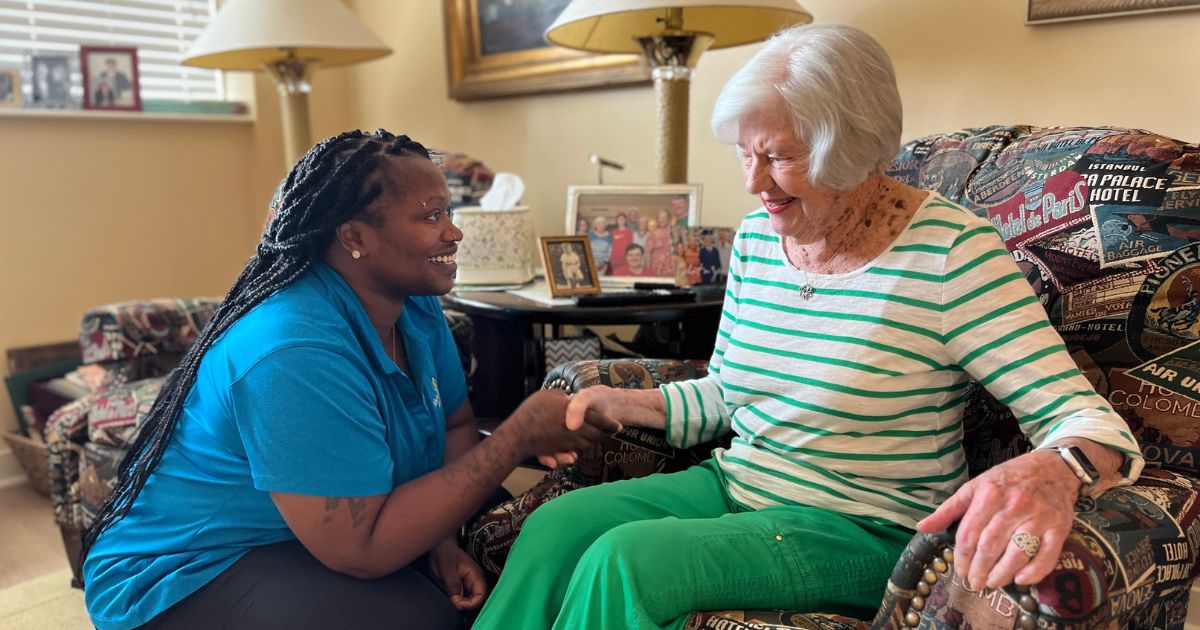As your loved one ages, remaining independent in their own home can become a challenge. While most individuals want to age in place in familiar surroundings for as long as possible, additional support may be needed at a certain point to ensure their safety and well-being.
How do you know when help is necessary? Recognizing the signs can be difficult. That’s why our team at Abe’s Garden Community has curated a list of seven signs your loved one may need a helping hand.
7 signs your aging loved one may benefit from in-home care
In-home care can be an ideal option for seniors who wish to age in place in their own home for as long as they can. In-home care is designed to provide professional service options to ensure older adults maintain their independence at home, often as an alternative to assisted living or other senior living options.
Here are several signs that it may be time to consider extra support like in-home care:
- Difficulty with daily living activities – Your aging loved one may need assistance with basic tasks, including bathing, dressing, and grooming. In-home care can provide that support, ensuring dignity and improving confidence.
- Require assistance managing a chronic health condition – Seniors may find a change in health or chronic condition like diabetes or heart disease hard to manage on their own. An in-home caregiver can serve as an escort to doctor appointments, conduct regular vital checks, and provide medication reminders.
- Struggling to prepare nutritious meals – Noticeable weight loss or signs that your loved one isn’t eating well can be reasons for concern. Older adults may lose interest in cooking or find it challenging to prepare nutritious meals. In-home care can assist with meal planning, grocery shopping, and preparation to ensure proper nutrition.
- Inability to keep up with household chores – Everyday chores, including laundry and housekeeping, can be increasingly difficult as you age. If your loved one seems overwhelmed with these tasks, home care may be a good solution. In-home care providers can do laundry and light housekeeping, so your loved one can thrive in a clean, healthy environment.
- Increased social isolation and feelings of loneliness – If your loved one starts to withdraw from social activities, hobbies, or gatherings with friends and family they previously enjoyed, it could be a sign of social isolation and loneliness. In-home care team members can ensure senior clients have access to transportation, companionship services, and supervision as needed to enjoy enriching activities and connections again.
- Experiencing falls or other accidents within the home – Increased weakness, frequent falls, or a recent injury within the home can affect an aging loved one’s safety and independence. If they seem unsteady on their feet or have trouble getting up from a seated position, an in-home caregiver may be a good option to assess home safety, help prevent falls, and assist with mobility and transfer needs.
- Struggling to manage medications and take medicine on time – Proper medication management is crucial for an older adult’s health, especially those who rely on various prescription drugs to manage a health condition. If you notice unexplained pill bottles, missed doses, or confusion about their medication schedule, assistance may be needed. In-home care professionals can ensure medications are taken correctly and on time.
What to consider when assessing the need for in-home care
When assessing the need for in-home care, consider both the frequency and severity of these signs, and consult with healthcare professionals for a comprehensive evaluation. Additionally, prioritize the person’s wishes and approach the conversation with sensitivity and respect for their independence and dignity.
In-home care with Abe’s Garden at Home is customized to meet each individual’s changing needs. Our flexible and compassionate team is here for you!
Are you ready to explore in-home care?
Download our free guide, “Compassionate Support from the Comfort of Home: A Guide to Abe’s Garden at Home,” to help you understand the options available to you and your loved one. You’ll learn about our approach, the benefits of in-home care, our service offerings, and how to get started.

